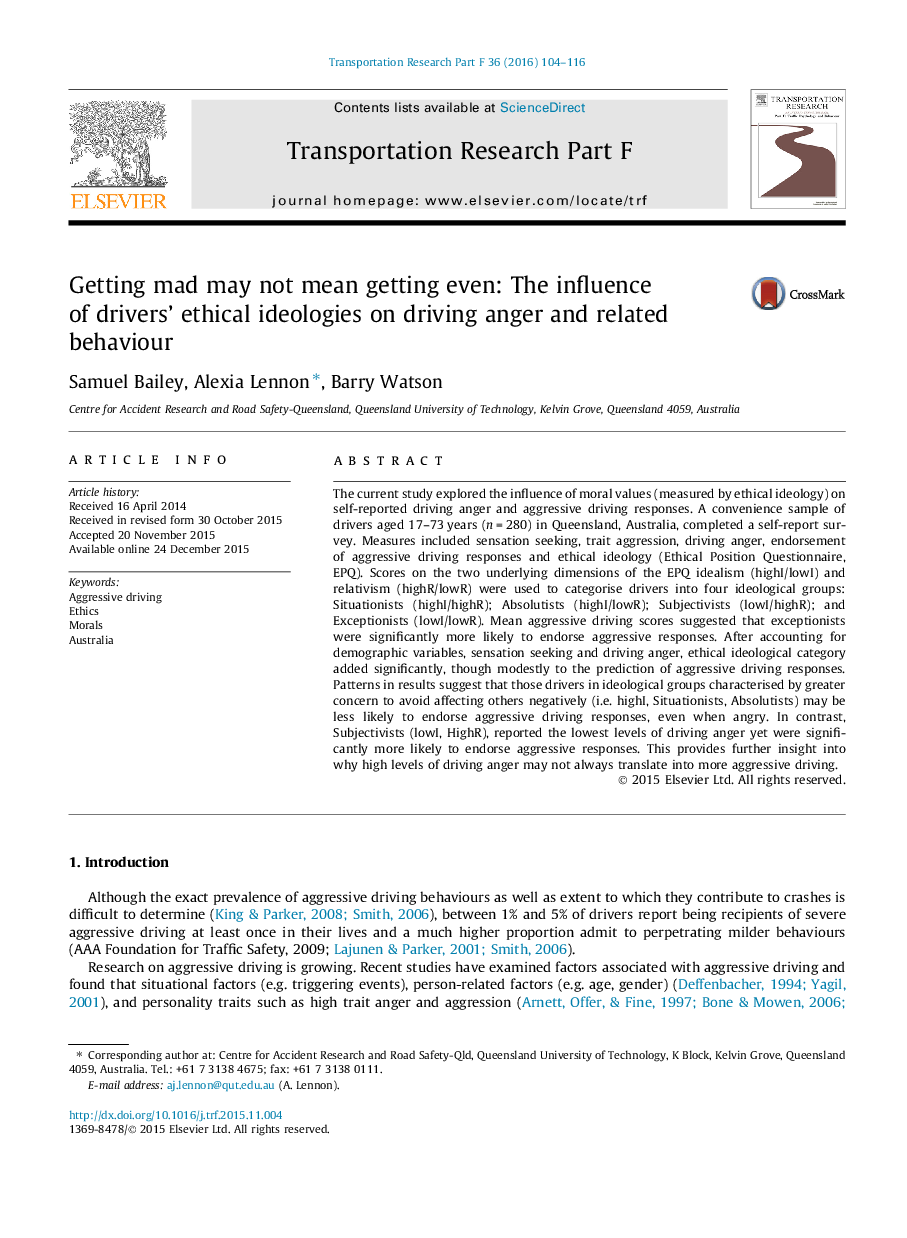| کد مقاله | کد نشریه | سال انتشار | مقاله انگلیسی | نسخه تمام متن |
|---|---|---|---|---|
| 897691 | 1472447 | 2016 | 13 صفحه PDF | دانلود رایگان |
• Driver moral values added significantly to explaining aggressive on-road responses.
• Drivers with styles emphasising others’ wellbeing gave less endorsement of aggression.
• Drivers with less regard for rules or others wellbeing had low anger, highest aggression.
• Interventions should attempt to capitalise on these results by appealing to moral values.
• Interventions could emphasise impact of own behaviour on wellbeing of self and others.
The current study explored the influence of moral values (measured by ethical ideology) on self-reported driving anger and aggressive driving responses. A convenience sample of drivers aged 17–73 years (n = 280) in Queensland, Australia, completed a self-report survey. Measures included sensation seeking, trait aggression, driving anger, endorsement of aggressive driving responses and ethical ideology (Ethical Position Questionnaire, EPQ). Scores on the two underlying dimensions of the EPQ idealism (highI/lowI) and relativism (highR/lowR) were used to categorise drivers into four ideological groups: Situationists (highI/highR); Absolutists (highI/lowR); Subjectivists (lowI/highR); and Exceptionists (lowI/lowR). Mean aggressive driving scores suggested that exceptionists were significantly more likely to endorse aggressive responses. After accounting for demographic variables, sensation seeking and driving anger, ethical ideological category added significantly, though modestly to the prediction of aggressive driving responses. Patterns in results suggest that those drivers in ideological groups characterised by greater concern to avoid affecting others negatively (i.e. highI, Situationists, Absolutists) may be less likely to endorse aggressive driving responses, even when angry. In contrast, Subjectivists (lowI, HighR), reported the lowest levels of driving anger yet were significantly more likely to endorse aggressive responses. This provides further insight into why high levels of driving anger may not always translate into more aggressive driving.
Journal: Transportation Research Part F: Traffic Psychology and Behaviour - Volume 36, January 2016, Pages 104–116
